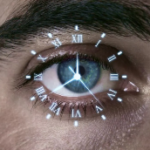General Eye Care
Vision is a precious gift. Your eyes are an important part of your health.
From comprehensive eye exams to early diagnosis and treatment of eye and vision problems, Ophthalmic Consultants of the Capital Region’s goal is to protect your vision throughout your lifetime.
But you play a key part in helping us reach that goal. Below are tips to keep your eyes healthy and make sure you’re seeing your best.
Have an annual comprehensive eye exam.
You might think your vision is fine and your eyes are healthy, but visiting Ophthalmic Consultants of the Capital Region for a comprehensive eye exam is a way to really be sure.
When it comes to common vision problems, some people don’t realize they could see better with glasses or contact lenses. In addition, many common eye diseases, such as glaucoma, diabetic eye disease, and age-related macular degeneration, often have no warning signs. An eye exam is the only way to detect these diseases in their early stages.
Ophthalmic Consultants of the Capital Region is equipped with the latest technology in diagnostic and examination equipment, allowing us to provide you with the most thorough, comprehensive eye examinations available.
If you have not had an eye exam in the past year, we recommend you schedule an appointment with one of our doctors today. We’ll evaluate your eye health, update your prescription if needed, and provide you with eye wear. Or perhaps you want to reduce your dependence on glasses and/or contacts. If so, you may be a candidate for LASIK.
Know your family’s eye health history.
Talk to your family members about their eye health history. It’s important to know if anyone has been diagnosed with an eye disease or condition, since many are hereditary. This information will help to determine if you’re at a higher risk for developing an eye disease or condition.
Use safety glasses.
Whether it’s playing sports, working with power tools, or doing yard work or household chores, it’s important to remember to protect your eyes. Countless preventable eye injuries occur each year due to a lack of protection. Remember that eyeglasses are not an adequate guard against debris and chemicals—use proper safety glasses, safety goggles, or face shields.
Don’t squint or strain your eyes.
Squinting and forcing your eyes to work hard can take a toll on your eyes. They may not cause your vision to change, but these acts can lead to eye fatigue. When your eyes are tired, you could experience headaches and other similar symptoms. Straining your eyes is usually a sign of poor vision, so if you have tired eyes on a regular basis, it might be time to get an eye exam.
Pay attention to warning signs.
The great thing about the human body is that it normally gives us little indicators whenever something is wrong. This goes for your eyes, too. There are a lot of warning signs you need to pay attention to. We already mentioned eye fatigue…that’s one warning sign. Other signs to look out for include blurry vision, trouble focusing, headaches, red eyes, sudden loss of vision, and general eye pain. Take any and all of these symptoms very seriously, and call us to make an appointment.
The eyes are the window not only to the soul, but also to the health of the body. Through a comprehensive eye examination, the doctor can sometimes see early indicators of certain systemic conditions.
Also, there are eye conditions that can become present without any signs, such as glaucoma, the “sneak thief of sight,” and diabetic retinopathy. So, we’re going to say it again—make sure you get your eyes examined on an annual basis.
Vegetables and omega-3 do your eyes and your body good. Your eyes, just like any other organ, require plenty of nutrients and minerals to function well. Vitamins A, C, E, as well as beta-carotene, zinc, and antioxidants such as omega-3 fatty acids, are particularly important for proper eye health. A diet lacking these nutrients can contribute strongly to diseases such as macular degeneration and dry eyes.
The Age-Related Eye Disease Study (AREDS) is an eye nutrition study sponsored by the National Eye Institute. Results from the AREDS showed that a specific combination of antioxidants and minerals significantly reduces the risk of advanced macular degeneration and its associated vision loss. After our own extensive research on eye vitamins, we chose PRN for our patients.
Maintain a healthy weight.
Being overweight or obese increases your risk of developing diabetes and other systemic conditions, which can lead to vision loss, such as diabetic eye disease or glaucoma.
Wear sunglasses.
Sunglasses are a great fashion statement, but their most important job is to protect your eyes from the sun’s ultraviolet rays. When purchasing sunglasses, look for ones that block out both UV-A and UV-B rays. We carry a great selection of sunglasses in Riverfront Optical.
Clean your hands and your contact lenses—properly.
To avoid the risk of infection, always wash your hands thoroughly before putting in or taking out your contact lenses. Make sure to disinfect contact lenses as instructed and replace them when needed. Click here for more information on the proper way to wash your hands.
NEXT STEPS
Call us to schedule an appointment with one of our specialists, ophthalmologists, or optometrists. It’s important to take care of your vision.
Get in touch with us today at our nearest location to you.

